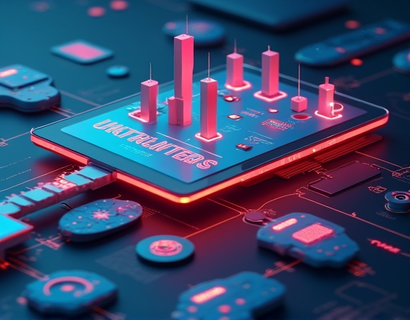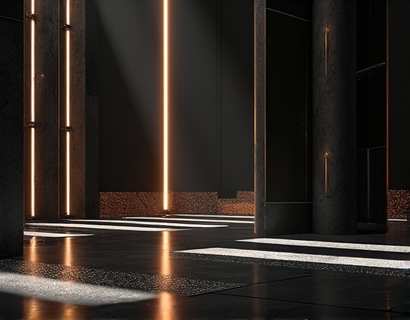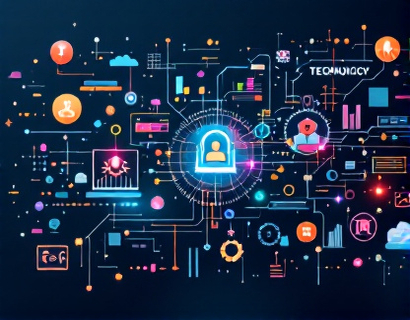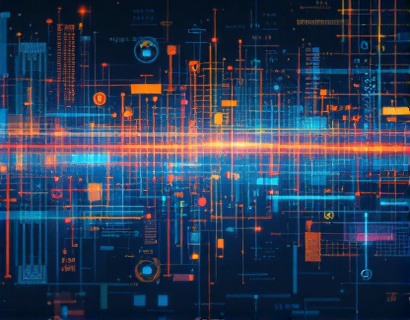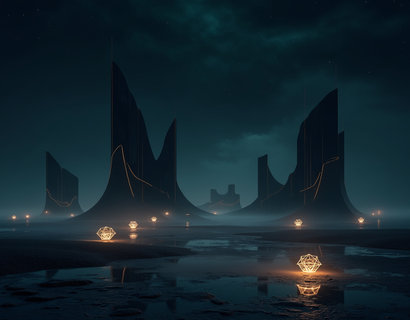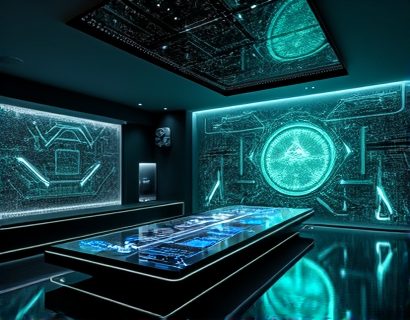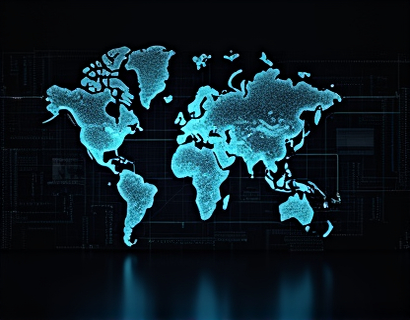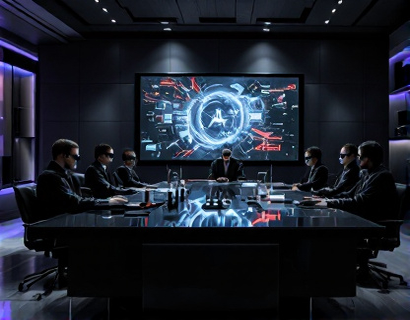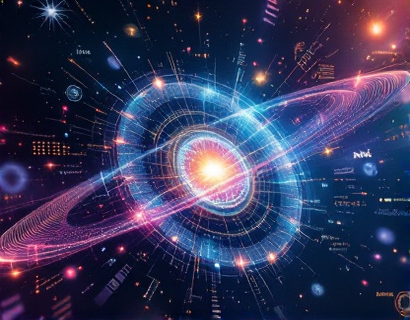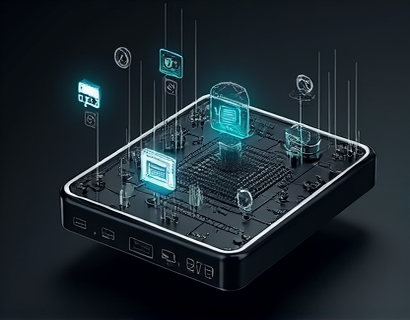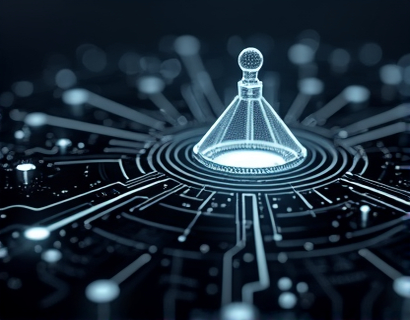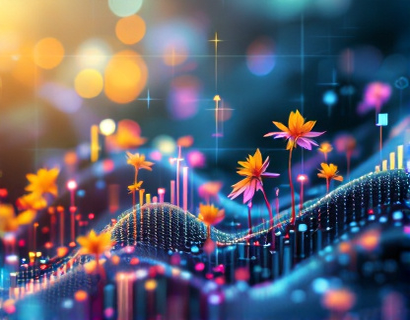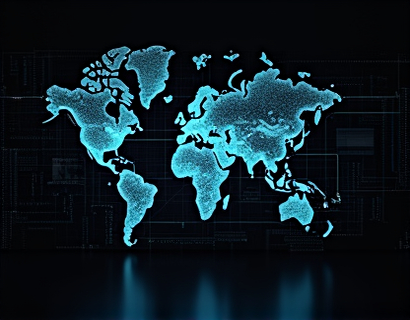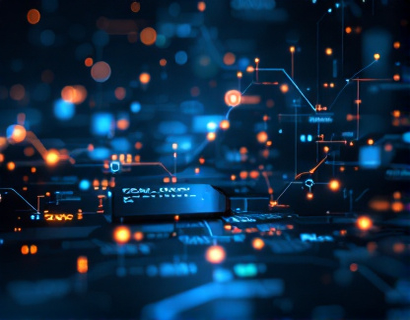Decentralized DAO Creation: Streamline Your Autonomous Project Launch with Advanced Tools and Resources
In the rapidly evolving landscape of blockchain technology and decentralized finance, the creation of Decentralized Autonomous Organizations (DAOs) has emerged as a transformative approach for launching and managing autonomous projects. A DAO is a digital entity that operates on a blockchain, governed by smart contracts and community-driven decision-making. This model offers unparalleled autonomy, transparency, and efficiency, making it an attractive option for entrepreneurs and organizations looking to innovate and lead in their respective industries.
The process of creating a DAO can be complex and daunting, involving intricate steps such as smart contract development, governance structure design, and community engagement. However, with the advent of advanced tools and resources, the journey to launching a decentralized venture has become significantly streamlined. This article delves into the key components and best practices for leveraging these tools to launch your DAO with ease and efficiency.
Understanding the Core Components of a DAO
Before diving into the tools and resources available, it's essential to understand the fundamental elements that constitute a DAO. At its core, a DAO is a self-governing organization where decisions are made collectively by its members, typically through a token-based voting system. The key components include:
- Smart Contracts: Self-executing contracts with the terms of the agreement directly written into code. They automate and enforce the rules and operations of the DAO.
- Token Economy: Tokens serve as the medium of exchange within the DAO, used for voting, incentivizing contributions, and rewarding members.
- Governance Structure: A framework that defines how decisions are made, including proposal submission, voting mechanisms, and conflict resolution.
- Community Engagement: Active participation and communication among members to ensure alignment and drive the DAO's mission.
Each of these components plays a crucial role in the success of a DAO. Smart contracts ensure transparency and reduce the risk of fraud, while a well-designed token economy motivates and rewards contributors. A clear governance structure provides direction and accountability, and robust community engagement fosters loyalty and innovation.
Advanced Tools for DAO Creation
To simplify the process of creating a DAO, several advanced tools and platforms have emerged, offering a comprehensive suite of features to support every stage of the project lifecycle. These tools cater to various needs, from initial setup to ongoing management, ensuring a seamless and efficient experience.
Smart Contract Development Platforms
One of the foundational tools for creating a DAO is a smart contract development platform. These platforms provide developers with the necessary infrastructure to build, test, and deploy smart contracts. Some popular options include:
- Solidity Studio: A visual environment for writing and testing Solidity smart contracts, widely used for Ethereum-based DAOs.
- Hardhat: A developer-friendly framework for building, testing, and deploying Ethereum-based blockchain applications, offering advanced features like mock providers and test networks.
- Truffle Suite: A development framework for Ethereum smart contracts that includes tools for testing, deployment, and migration, along with a rich ecosystem of plugins.
These platforms not only simplify the coding process but also enhance security through rigorous testing and debugging capabilities. By using these tools, developers can ensure that their smart contracts are robust and free from vulnerabilities.
Governance and Token Management Tools
Effective governance and token management are critical for the smooth operation of a DAO. Tools in this category help in creating and managing tokens, setting up voting mechanisms, and facilitating decision-making processes. Key tools include:
- OpenZeppelin: A library of secure and audited smart contract templates, including modules for token creation, governance, and more. OpenZeppelin contracts are widely adopted due to their reliability and security.
- Aragon: A platform for building and managing DAOs, offering a suite of tools for token creation, governance, and community management. Aragon's user-friendly interface and extensive documentation make it accessible for both developers and non-technical users.
- Polygon Governance: A governance solution built on the Polygon network, providing a flexible and scalable framework for DAO decision-making. It supports multi-signature wallets, voting protocols, and more.
These tools not only streamline the creation and management of tokens but also provide robust governance features that enhance transparency and accountability. By leveraging these solutions, organizations can establish a fair and efficient decision-making process.
Community Engagement and Communication Platforms
Building and maintaining a strong community is vital for the success of a DAO. Effective communication and engagement tools help in fostering a vibrant and active member base. Some essential platforms include:
- Discord: A popular platform for real-time communication, ideal for creating community channels, hosting meetings, and sharing updates.
- Telegram: A messaging app that supports channels and groups, making it suitable for organized community discussions and announcements.
- Slack: A collaborative workspace that offers advanced features for team communication, integration with other tools, and customizable workflows.
- Mattermost: An open-source alternative to Slack, providing a decentralized and privacy-focused communication solution.
These platforms enable seamless communication among members, ensuring that everyone is informed and engaged. By choosing the right tools, organizations can build a cohesive and motivated community that drives the DAO's goals.
Project Management and Development Tools
Efficient project management is crucial for the successful execution of DAO initiatives. Project management tools help in organizing tasks, tracking progress, and collaborating with team members. Some recommended tools include:
- Trello: A visual project management tool that uses boards, lists, and cards to organize tasks and workflows. Its simplicity and flexibility make it a favorite among developers and non-technical users alike.
- Asana: A comprehensive project management platform that offers advanced features for task assignment, deadline setting, and progress tracking. Asana integrates well with other tools, enhancing productivity.
- GitHub: A web-based platform for version control and collaboration, essential for software development projects. GitHub allows teams to manage code repositories, track changes, and collaborate effectively.
- GitLab: An all-in-one DevOps platform that combines version control, issue tracking, and continuous integration/continuous deployment (CI/CD) in one place.
These tools help in maintaining a structured and transparent workflow, ensuring that projects stay on track and goals are met efficiently.
Best Practices for Launching a DAO
To maximize the chances of success when launching a DAO, it's important to follow best practices at each stage of the process. Here are some key considerations:
1. Define Clear Objectives and Mission
Before initiating the creation process, clearly define the purpose and mission of your DAO. What problem are you solving? What value will your DAO bring to its members and the broader community? A well-defined mission will guide your decisions and attract like-minded individuals.
2. Choose the Right Blockchain Platform
Selecting the appropriate blockchain platform is crucial for the performance and scalability of your DAO. Ethereum remains the most popular choice due to its mature ecosystem and extensive tool support. However, platforms like Binance Smart Chain, Solana, and Polygon offer alternative options with different advantages, such as lower transaction fees and higher throughput.
3. Design a Robust Governance Structure
A well-designed governance structure is the backbone of a successful DAO. Define the roles and responsibilities of different stakeholders, establish clear decision-making processes, and implement mechanisms for conflict resolution. Transparency and fairness are key to maintaining trust and participation.
4. Develop Secure Smart Contracts
Security is paramount in blockchain applications. Use reputable smart contract development platforms and follow best practices such as code audits, peer reviews, and thorough testing. OpenZeppelin and other trusted libraries can help ensure that your contracts are secure and reliable.
5. Foster Community Engagement
Building a strong and active community is essential for the success of your DAO. Utilize communication platforms to keep members informed, encourage participation in governance, and recognize contributions. Regular updates, transparent discussions, and inclusive decision-making processes will foster a sense of ownership and loyalty among members.
6. Plan for Scalability and Flexibility
As your DAO grows, it's important to plan for scalability and flexibility. Design your governance structure and systems to accommodate increasing membership and more complex decision-making processes. Stay adaptable and open to evolving your approach based on community feedback and technological advancements.
Conclusion
Launching a DAO can be a complex but rewarding endeavor, offering a new paradigm for decentralized and autonomous project management. By leveraging advanced tools and resources, organizations can streamline the creation and management of their DAOs, ensuring a smooth and successful launch. From smart contract development to community engagement, each step requires careful planning and execution. By following best practices and staying informed about the latest tools and trends, you can empower your DAO to innovate and thrive in the decentralized landscape.




